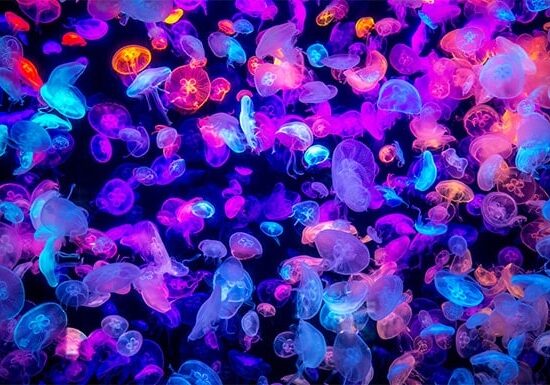What Is Natural Science? 5 Definitions
Updated: June 19, 2024

Students learn different types of natural science throughout different stages of their schooling. In elementary school, you might learn basics about the Earth, in high school you’ll begin to explore biology, and then at the university level, the sky’s the limit.
But did you know that there are five major types of natural sciences? Each one looks at different aspects of our world (and some beyond) with the purpose of researching and making sense of it all. Let’s take a closer look at what natural science is, including its meaning, the different branches, and natural science courses you can take.
Source: Unsplash Alt text: view of a satellite and earth from space in the study of space science
Natural Science: Definition
There’s no one answer to the question “What is natural science?” Natural science is made up of different branches, like physics, chemistry, or biology. However, the one thing they mostly all have in common is that, in general, natural science deals with matter in the same way.
According to Merriam Webster’s definition of natural science, it’s any science that deals with “matter, energy, and their interrelations and transformations or with objectively measurable phenomena.”
The Meaning of Natural Science
Now that we’ve defined natural science, you probably want a deeper understanding of what it really means, at its core.
Natural science is based completely around events and phenomena that occur naturally.
Humans have a curiosity as to why certain things occur in nature, and this is where natural science comes in. Researchers and scientists explore these natural events to better understand them and why they took place.
This research can then be used to predict future events or explain why and how things happen in nature so that we can protect or even mimic these processes.
Natural science should not be confused with social science, which seeks to understand humans, not nature. Natural science helps humans understand the world around them and to seek explanations for the seemingly unexplainable, whether that’s weather patterns or how stars and galaxies are formed.
However, one similarity between social science and natural science is their ultimate goal: to learn. As humans, we want to understand and learn more about the world around us and the people in them, and this concept is shared between many types of sciences.
The Two Main Subjects in Natural Sciences
Natural science can be further broken down into two categories: life sciences and physical sciences.
Life science refers to things like biology or human anatomy, in other words, sciences that revolve around all living things on Earth.
Physical science covers the rest of the natural sciences, like chemistry and physics, for example, so the areas that aren’t directly related to life.
Still, there are five primary branches that make up natural sciences, with each one falling into one of these two categories.
The Five Main Branches of Natural Science
Source: Unsplash Alt text: beakers in a lab used by chemists who study natural science
Just as social science has different branches like psychology, history, or anthropology, natural science also has different branches. Let’s take a closer look at each one to understand what they entail.
1. Biology
As we established earlier, biology falls under the life sciences category since it deals with living organisms on earth. Biologists can study a variety of different types of lives, from humans to animals, plants, or even microorganisms.
Biology seeks to understand the lives of all organisms, such as their physical being as well as their place in the world and how they interact with the environment.
There are many different topics you can study that fall under the umbrella of biologies, such as food science, animal biology, agriculture, or human biology.
2. Chemistry
Chemistry works with matter and studies how atoms come together and react to each other. Part of chemistry is researching things like chemical behavior, reactions, properties of different matter, their structure, and composition.
Chemists will perform experiments to study how matter bonds or interacts with each other for the purpose of discovery.
There are a lot of different things you can accomplish with chemistry, like creating new medicines, studying chemicals in the environment, and creating new compounds.
3. Earth Sciences
Earth sciences is one branch of natural science, but it itself is made up of a few different types of sciences, namely geology, oceanography, geography, atmospheric sciences, and planetary science.
Each one of these focuses on a different area of what makes the earth what it is. For example, atmospheric scientists work closely with climate scientists to look at the world’s atmosphere and its effect on the ecosystem.
All the earth science fields look at different natural phenomena that occur on Earth and aim to understand them better.
4. Physics
Physics is the study of the properties of matter and energy. In physics, scientists look at aspects of motion, force, time, energy, space, and more to understand how the world works.
Physicists can study many different elements relating to nature and energy and might focus on topics like how heat and light work, radiation, mechanics, electricity, and more.
In fact, within physics, you can study something as small as atom structure or something as large as galaxies.
5. Space Sciences
This will also be referred to by some as astronomy, but it’s a lot more than just astronomy since space sciences involve everything from studying planets to planning space exploration.
There’s so much still unknown about the universe beyond planet Earth, and this branch of science is focused on learning more about all the natural phenomena that occur in space.
Some of the topics that make up space sciences are fields like aerospace engineering, cosmology, astrobiology, planetary science, and more.
What Does Studying Natural Science Involve?
Like many subjects in the field of science, you’ll need to have a good understanding of mathematics. Many subjects like physics and chemistry used advanced mathematics to work on experiments.
The number of degrees you need might depend on the field you choose to study in, but in general, your focus will begin to narrow the further you get into your studies. You can start off by studying more than one of the natural sciences, and then, as your interests change, you’ll begin to narrow down your field of study as you go into a master’s or PhD program.
Common Natural Science Courses
This list will give you a small taste of some of the courses you might be able to take when you study one or more of the branches of natural science. Of course, this list isn’t exhaustive as the topics you can study are vast and varied, but this should give you a good idea of what to expect.
- Microbiology: In a microbiology course, you’ll look at how microorganisms function. You might work in a lab as well to gain practical experience.
- Cosmology: In a cosmology or general relativity course, you’ll cover a lot of topics relating to the history of the universe as well as things related to gravity, space and time, and more.
- Physics: Many physics courses will involve analyzing force and motion, and you’ll likely cover topics like methodologies and different scientific theories.
- Oceanography: Courses in oceanography will cover topics like marine mammals and environments as well as the oceans and climate change.
- Biological anthropology: Students in this type of course will learn about evolution as well as other topics related to genetics, human adaptation, or might even work on lab experiments.
To Wrap Up
Natural science involves five different branches that are each made up of thrilling fields of science. Each one serves its own purpose and is meant to look at a different element of our world, but when pieced together, it shows us a bigger picture of the universe and of ourselves.
If you’re interested in both natural and social sciences, we suggest finding a field of study that combines the two. At University of the People (UoPeople), we offer a Health Science degree where you can study natural sciences, like biology and human anatomy, and social sciences, like sociology. The best part? This bachelor’s degree is entirely tuition-free and can be done entirely online.



